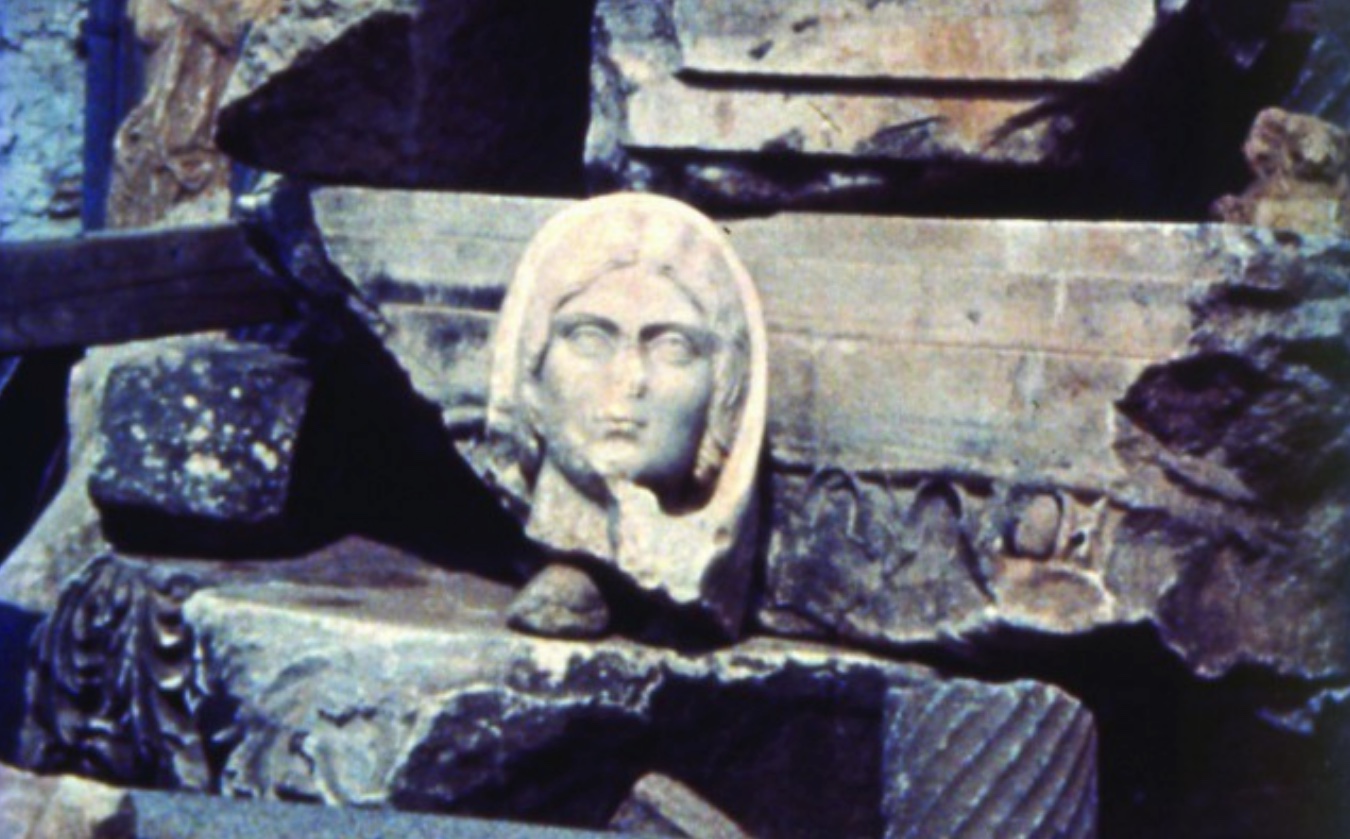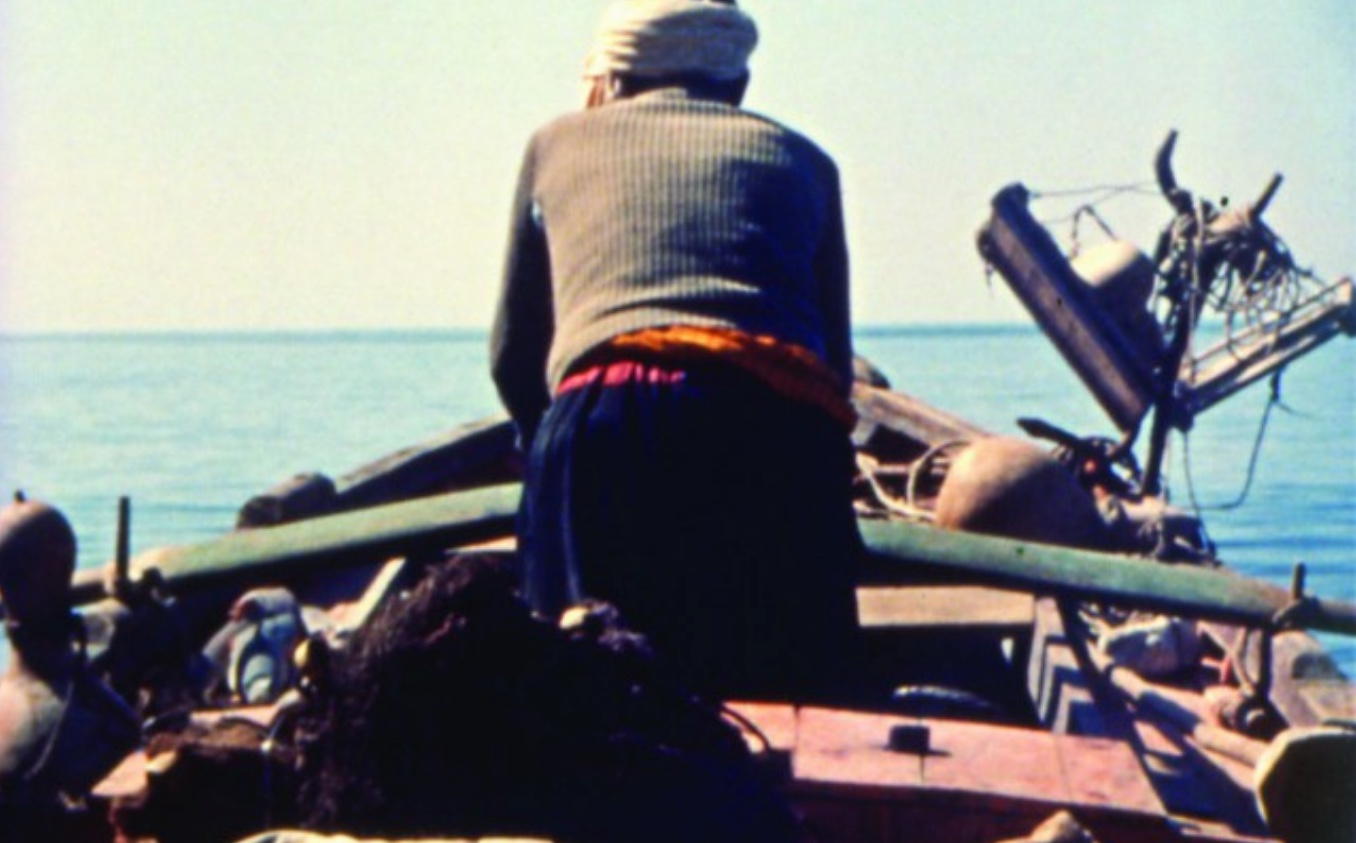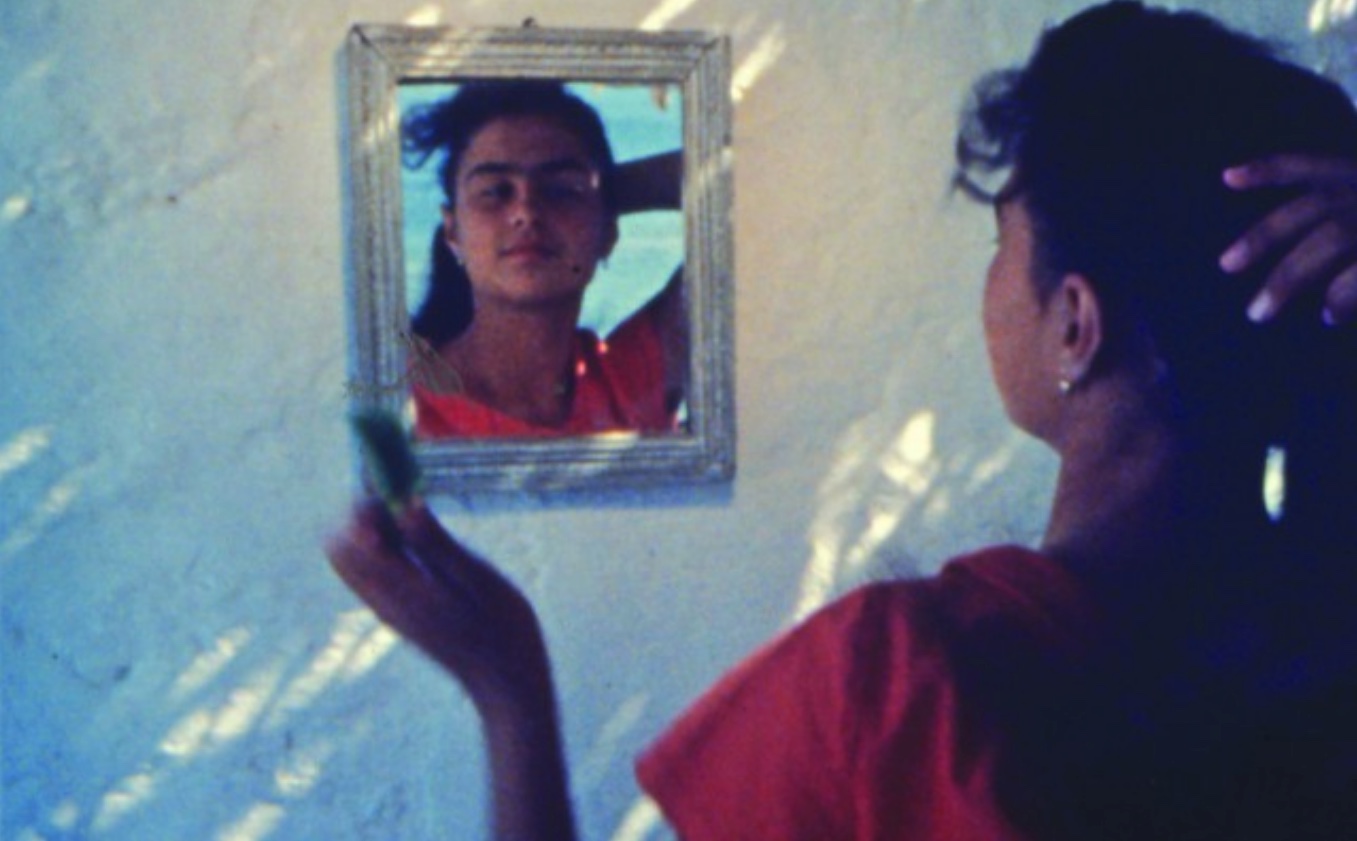지중해 MÉDITERRANÉE(Mediterranean)_장-다니엘 폴레 Jean-Daniel Pollet



지중해 MÉDITERRANÉE(Mediterranean)_장-다니엘 폴레 Jean-Daniel Pollet
France / 1963 / Color / Sound / 45min / DCP
이 작품은 폴커 슐렌도르프와의 협력하에, 잭키 레이날의 편집으로 완성되었다. 텍스트는 필립 솔레르스가 쓰고 오리지널 스코어는 앙투안 뒤아멜이 작곡하였다.
Made in collaboration with Volker Schlöndorff; edited by Jackie Raynal; text by Philippe Sollers; original score composed by Antoine Duhamel
Description
우리는 오늘날의 그리스에 대해 무엇을 아는가… 우리는 아탈란타의 재빠른 발에 대해 무엇을 아는가… 페리클레스의 말로부터… 아테네의 티몬은 포럼에 오를 때 무슨 생각을 했는가… 그리고 이 스파르타의 소년은 여우가 그의 배를 파먹을때 무슨 생각을 했는가… 논의를 넓혀보자… 우리는 수천년전에 그곳에서 태어났다는 것을 제외하고 우리 자신에 대해서 무엇을 아는가… 그리하여 우리는, 말하자면 다리우스나 징기즈칸처럼 세계를 가져오는 것이 아니라 몇몇의 사람들이 그와의 연대감, 신이 보낸 빛이 아니라 그들에 의해 반사된 빛과, 태양과, 바다와의 연대감을 느끼는 그 황홀한 순간에 관해 무엇을 아는가…
결정적이고 또 자연스러운 이 순간으로부터, 장-다니엘 폴레의 영화는 완전한 열쇠꾸러미가 아니라 적어도 가장 중요한 열쇠를 전달해준다… 또한 가장 연약한 것이기도 한… 70대의 특별한 정신이 패배시킨 이 따분한 이미지의 연속은 오직 영화만이 잃어버린 시간을 변형시키는 방법을 알고있는 그 공간을 우리가 발견하도록 이끈다.. 혹은 그 반대이거나… 왜냐하면 이곳은 해안가의 조약돌처럼 스크린 위에 버려진 부드럽고 둥근 행성이기 때문이다. 그리고 이후 파도처럼 각각의 필름의 접합면은 인화되고 단어의 기억, 행복, 여성, 하늘 같은 단어를 지운다… 죽음 또한 마찬가지인데, 왜냐하면 오르페우스보다 용감한 폴레는 내가 어느 다마스커스인지는 모르는 곳의 병원에서 이 천사의 얼굴을 여러 번 켠다. (장 뤽 고다르, 까이에 뒤 시네마 187호, 1967년 2월)
What do we know about Greece today ... What do we know about Atalanta's agile feet ... From Pericles' speeches ... What did Timon of Athens think when he climbed the forum ... And this schoolboy from Sparta while the fox ate his belly. Let's broaden the debate ... What do we know about ourselves, except that we were born there thousands of years ago ... So what do we know about this wonderful moment where a few men, how to say, instead of bringing back the world to them like any Darius or Genghis Khan, felt solidarity with him, in solidarity with the light not sent by the gods but reflected by them, in solidarity with the sun, in solidarity with the sea ...
From this moment both decisive and natural, Jean-Daniel Pollet's film delivers us if not the complete keychain, at least the most important keys ... The most fragile too ... In this banal series of images in 16 on which blows the l 'extraordinary spirit of the 70, to us now to find the space that only the cinema knows how to transform lost time ... Or rather the opposite ... Because here are plans smooth and round abandoned on the screen like a pebble on the shore ... Then as a wave, each collure comes to print and erase the word memory, the word happiness, the word woman, the word sky ... Death also because Pollet, braver than Orpheus, has turned several times on this Angel Face in the hospital of I do not know which Damascus …(Jean-Luc Godard, Cahiers du Cinéma No. 187, February 1967)

